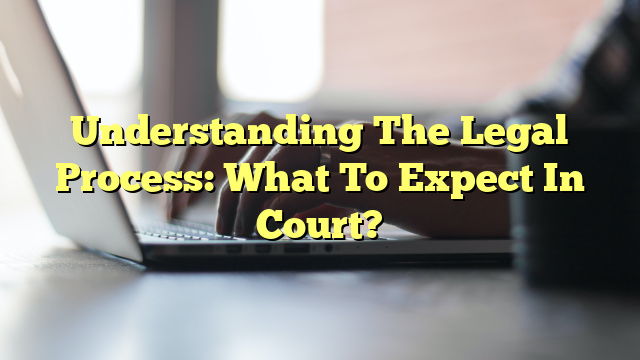Table of Contents
- The Process Before Going to Court
- The Most Important Part of the Court Process
- What to Do When You Don’t Know the Answer in Court
- Legal Process Defined
The Process Before Going to Court
The legal process before going to court includes several steps. First, the person or entity filing the lawsuit must prepare and file a complaint, which is a document that outlines the basis and facts that support the lawsuit. Once the complaint is filed, the party being sued (the defendant) must file an answer, which is a document that responds to the claims made in the complaint. In some jurisdictions, the defendant may also file a counterclaim, which is a document that outlines the defendant’s own claims against the plaintiff.
The next step in the process is discovery. During this phase, both parties exchange documents and other evidence and take depositions of each other’s witnesses. This is an opportunity for each side to find out what evidence and arguments the other party has in its possession. After discovery is complete, the parties may file motions with the court that ask the judge to rule on certain issues in the case.
Finally, after all of the aforementioned steps are completed, the case is set for trial. During the trial, each side will present its case and witnesses to the jury or judge. After both sides have presented their cases, the jury or judge will make a decision about the case.
The Most Important Part of the Court Process
The most important part of the court process is being prepared for trial. The parties to the lawsuit must make sure they are familiar with the facts and evidence in the case and have a thorough understanding of the applicable laws. They must also be prepared to present their case in a clear and convincing manner.
It is also important for parties to the lawsuit to be prepared for the possibility of settlement negotiations. During the course of litigation, the parties may decide to negotiate in order to avoid the expense and uncertainty of a trial. Negotiations can be successful if each side is willing to compromise and both parties understand the risks and rewards associated with settling the case.
What to Do When You Don’t Know the Answer in Court
When testifying in court, it is important to be honest and straightforward. If a witness does not know the answer to a question, it is important to say so. A witness should not guess or make assumptions, as this can be misleading and could lead to inaccurate testimony. It is also important for a witness to be respectful and courteous to the judge and opposing counsel.
Legal Process Defined
The legal process is the process by which a dispute is resolved through the court system. It typically begins with the filing of a complaint, which outlines the facts and legal arguments that support the plaintiff’s claim. After the complaint is filed, the defendant must respond with an answer and may file a counterclaim if appropriate. Discovery then ensues, during which the parties exchange documents and take depositions of each other’s witnesses. After discovery is complete, the case is set for trial, during which the parties present their cases and witnesses to the jury or judge. After both sides have presented their cases, the jury or judge makes a decision about the case.


An understanding of the legal process can make the court experience less daunting. Knowing what to expect can help ensure the best possible outcome.
The legal process can be complex, but this article provides a great overview of the court process, helping us to better understand what to expect.
While the article on ‘Understanding The Legal Process’ is informative, I find that reality in court can often be more unpredictable.
While I understand the importance of being prepared for a court hearing, I think there is much more to the legal process than this article presents. For instance, knowledgeable legal counsel is essential in navigating the nuances of the law, and the ability to effectively present evidence and arguments.
Great article on understanding the legal process. Maybe also discuss common legal costs associated with court.